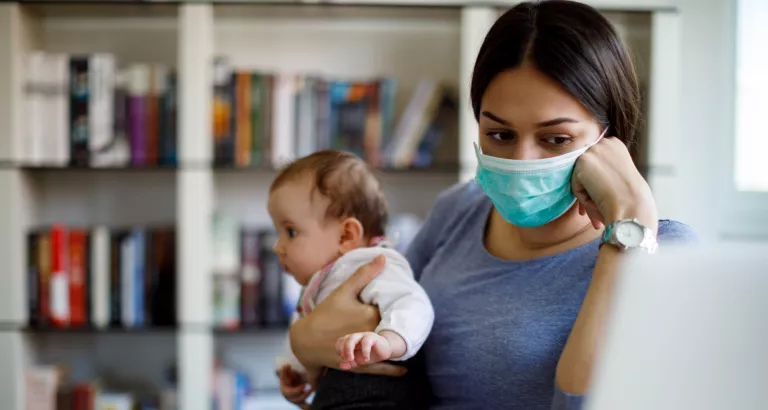COVID-19 and depression: Understanding the mental effects of a pandemic

Depression rates and symptoms tripled during the first year of the pandemic
A new study by the Boston University School of Public Health (BUSPH), published in the journal The Lancet Regional Health – Americas, found US adult depression rates tripled during the first year of the pandemic— further showcasing the strong link between COVID-19 and depression. Prior to that, about 8% of adults reported experiencing depression. In early 2020, that number rose to 28%, and by 2021, it had jumped again to 32%.
Researchers used the data of 5,056 people from three different surveys: the 2017-2018 National Health and Nutrition Examination Survey (NHANES) and two COVID-19 Life Stressor Impact on Mental Health and Well-Being (CLIMB) surveys. The first CLIMB survey was conducted during the beginning of the pandemic, while most were still under stay-at-home orders. The second survey was taken by the same group a year later.
Both surveys used the Patient Health Questionnaire-9 (PHQ 9) to gather demographic data and assess depression symptoms, as well as collected data on what individuals felt were pandemic-related stressors.
The most common of these stressors were:
- Death of a loved one due to COVID
- Financial insecurity
- Loneliness
- Childcare challenges
- Job loss
Some predictors from the study for elevated depressive symptoms were:
- Low household income
- Not being married
- Multiple pandemic-related stressors
The findings from the study highlight the short-term and long-term impact on the mental health of Americans.
Low-income households have been disproportionately impacted
The survey noted that the link between COVID and depression was especially felt by lower-income adults. People making less than $20,000 at the start of the pandemic were 2.3 times more likely to experience elevated depression compared to those that made more than $75,000 a year. The disparagement between high and low-income individuals worsened over time. By early 2021, adults with income challenges were seven times more likely to experience depression compared to high-income individuals.
Catherine Ettman, a doctoral candidate at BUSPH and chief of staff and director, said, “The sustained and increasing prevalence of elevated depressive symptoms suggests that the burden of the pandemic on mental health has been ongoing—and that it has been unequal.”
According to Ettman, efforts should be made to assist low-income populations that have been disproportionately impacted by the pandemic.
“Addressing stressors such as job loss, challenges accessing childcare, and difficulties paying rent, will help to improve population mental health and reduce inequities that have deepened during the pandemic.
Multiple pandemic-related stressors increased the risk of depression
During the first year of the pandemic, some stressors that impacted everyone on a population level decreased, but not everyone experienced relief. People that experienced more than four pandemic-related stressors were more likely to experience elevated depression symptoms, and they were the least likely to be able to overcome those stressors.
Coping with COVID and depression
The pandemic has put a huge strain on many aspects of life, and anyone might experience depression related to COVID. If you have been experiencing depression due to COVID, please reach out to a health professional to get the help you need. Take care of your body and mind with self-care strategies, and don’t be afraid to chat with friends and family when things get tough.




